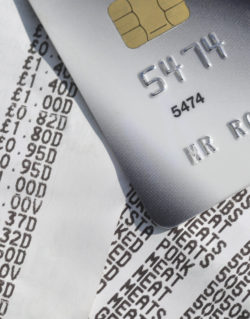 The Fair and Accurate Transactions Act (FACTA), is an amendment to the FCRA (Fair Credit Reporting Act) added to protect consumers against identity theft.
The Fair and Accurate Transactions Act (FACTA), is an amendment to the FCRA (Fair Credit Reporting Act) added to protect consumers against identity theft.
It provides rules for credit card receipts and limits the ways other consumer information can be shared.
Under this federal law, if rules for credit card receipts are violated or other violations of the way consumer information can be shared occurs, a consumer may be eligible to obtain compensation even if the violation didn’t actually lead to identity theft.
According to FACTA, violations of rules for credit card receipts include printing any portion of a consumer’s expiration date or any part of a consumer’s credit card or debit card number other than the last five digits.
FACTA Overview
To curtail and inhibit the growing concern of identity theft, Congress enacted FACTA in 2003.
FACTA specifically states, “no person that accepts credit cards or debit cards for the transaction of business shall print more than the last 5 digits of the card number of the expiration date upon any receipt provided to the cardholder at the point of sale or transaction.”
Rules for credit card receipts restricted by FACTA includes the information shown on a consumer’s credit card or debit card. Proper omission of card number digits sometimes shows up on a consumer’s printed purchase receipt by the masking of numbers, typically done with symbols such as an * or # on the receipt.
FACTA applies to every consumer who has purchased and has been handed an electronic purchase receipt such as by a self-service kiosks, at a restaurant and at retail cash registers.
Expiration Date and Credit/Debit Card Violations
Nowhere on a customer’s printed purchase receipt is the expiration date of the credit card or debit card allowed.
For example, violations that may turn up if your credit card’s expiration date is March 2017 include: EXP: 03/17; EXP: 03/2017; EXP: 032017; EXP:0317; Expires: 0317; Exp Date:03/31/17; EXPIRY: 03/17; 03/17; 0317; Exp. Date 03/**; EXP. **/17.
A violation of FACTA occurs if anything other than the last five digits of a consumer’s credit card or debit card number is shown on a purchase receipt. Rules for credit card receipts disallow a retailer from printing or displaying anything other than the last five digits.
For example, if a consumer’s card number is: 1111-2222-3333-4444, violations of rules for credit card receipts can include:
Example 1: 11** **** **** 4444
Example 2: **** **22 **** 4444
Example 3: **** **** **33 ****
Consumers who receive a receipt that violates FACTA may be in a position to bring a FACTA lawsuit. Successful plaintiffs may qualify for an award statutory damages of $100 to $1,000 for each violation.
FACTA, passed in 2003 aimed at decreasing and protecting consumers against identity theft, further allows individuals access to their own credit reports from the three major reporting agencies Equifax, Experian and TransUnion.
Free FACTA Class Action Lawsuit Investigation
If you made one or more purchases and the retailer provided you with a receipt that contained more than the last five digits of your credit or debit card number or the expiration date, you may be eligible for a free class action lawsuit investigation and to pursue compensation for these FACTA violations.
ATTORNEY ADVERTISING
Top Class Actions is a Proud Member of the American Bar Association
LEGAL INFORMATION IS NOT LEGAL ADVICE
Top Class Actions Legal Statement
©2008 – 2026 Top Class Actions® LLC
Various Trademarks held by their respective owners
This website is not intended for viewing or usage by European Union citizens.














